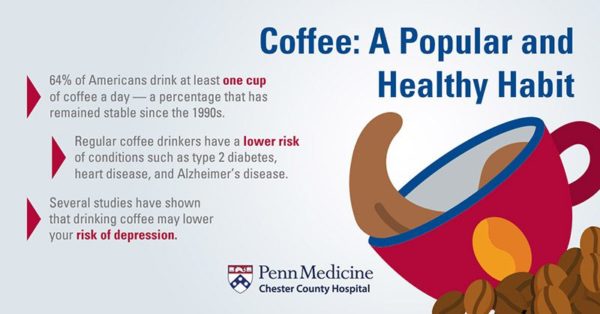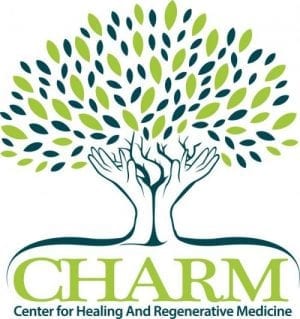We know it, we love it, some of us need it. But are there health benefits to drinking coffee? Does it do more for you than just give you energy? In 1991, coffee was included on a list of possible carcinogens by the World Health Organization. This was because coffee was thought to increase a person’s risk of cancer. By 2016, it was removed from the list and newer research has shown that people who regularly drink coffee have a lower risk of certain cancers. This begs the question: is coffee good for you?

Coffee comes from beans, which are a source of caffeine, vitamin B2 (riboflavin), and magnesium. The amount of caffeine in coffee varies wildly, depending on the roast, grind and brewing method of the beans. There is also a decaffeinated option for those who experience negative side effects of caffeine, such as jitters, anxiety, and insomnia. The caffeine is removed using chemical solvents or carbon dioxide gas. These methods can alter the taste/flavor of the coffee slightly.

Let’s examine the positive effects of coffee on the following diseases/conditions:
- Cancer
- Cancer can develop in different ways, depending on the organ of origin. Coffee could lower the risk of certain cancers because of the way it affects cancer development.
- Coffee may stimulate the production of bile acids and increase the speed of digestion. This results in the colon tissue being exposed to less carcinogens thus decreasing the risk of colon cancer.
- Also, coffee has been linked to lower estrogen levels. High estrogen levels are associated with several different cancer types, including breast cancer.
- Type 2 diabetes
- Research has shown that the minerals, such as magnesium, in coffee may improve the effectiveness of insulin and help manage glucose metabolism. This outweighs the temporary increase in blood sugar from drinking coffee.
- It is worth mentioning that research into the benefits of coffee is primarily looking at black coffee, with very little added sugars. If you are in the habit of drinking very sugary coffee beverages, you are susceptible to more significant spikes in blood sugar.
- A group of studies looked at the coffee consumption of 45,335 people who were followed for around 20 years. An association was found between increasing cups of coffee and a lower risk of developing diabetes. Compared to people who don’t drink coffee, those who drink about 6 cups a day had a 33% decreased risk of diabetes.
- Research also shows that eating a plant-based diet lowers your risk of diabetes by helping you maintain healthy blood sugar levels. For more information check out this blog post: https://charmaustin.com/advantage-of-a-plant-based-diet/
- Heart disease
- Heart disease is regularly listed as one of the top causes of deaths in America. In many cases, heart disease develops from poor lifestyle and diet choices. The good news is that if you change your habits you can decrease your risk for major cardiac events such as stroke and heart attack. Resistance training is one way you can positively impact your cardiovascular system: https://charmaustin.com/resistance-training-may-reduce-cardiovascular-risk/
- A group of 36 studies looked at coffee consumption and risk of cardiovascular diseases. The results showed that when compared to no coffee intake, a moderate coffee intake (3 – 5 cups a day) was associated with a 15% lower risk of cardiovascular disease (including stroke, heart failure, and heart disease).
- A different group of 21 prospective studies looked at coffee consumption and death from chronic diseases. They found a link between moderate coffee consumption and a 21% lower risk of death from cardiovascular disease, compared to non-coffee drinkers.
- Depression
- The relationship between coffee and mental health is variable because every person responds to caffeine differently. For some, drinking coffee improves their productivity thereby decreasing anxiety and improving mood. For others, caffeine can cause jitters, heart palpitations, and difficulty sleeping.
- Aside from caffeine, the natural polyphenols in coffee can act as antioxidants which reduce damaging oxidative stress and inflammation of cells. This can result in a proper balance of hormones thereby reducing the risk of depression.

In summary, coffee has many health benefits and is good for you! It is important to remember that moderation is key when it comes to caffeine intake, as there is such a thing as too much caffeine. Also, coffee is the healthiest for you when drunk without a significant portion of added sugar and creamer.
Sources:





